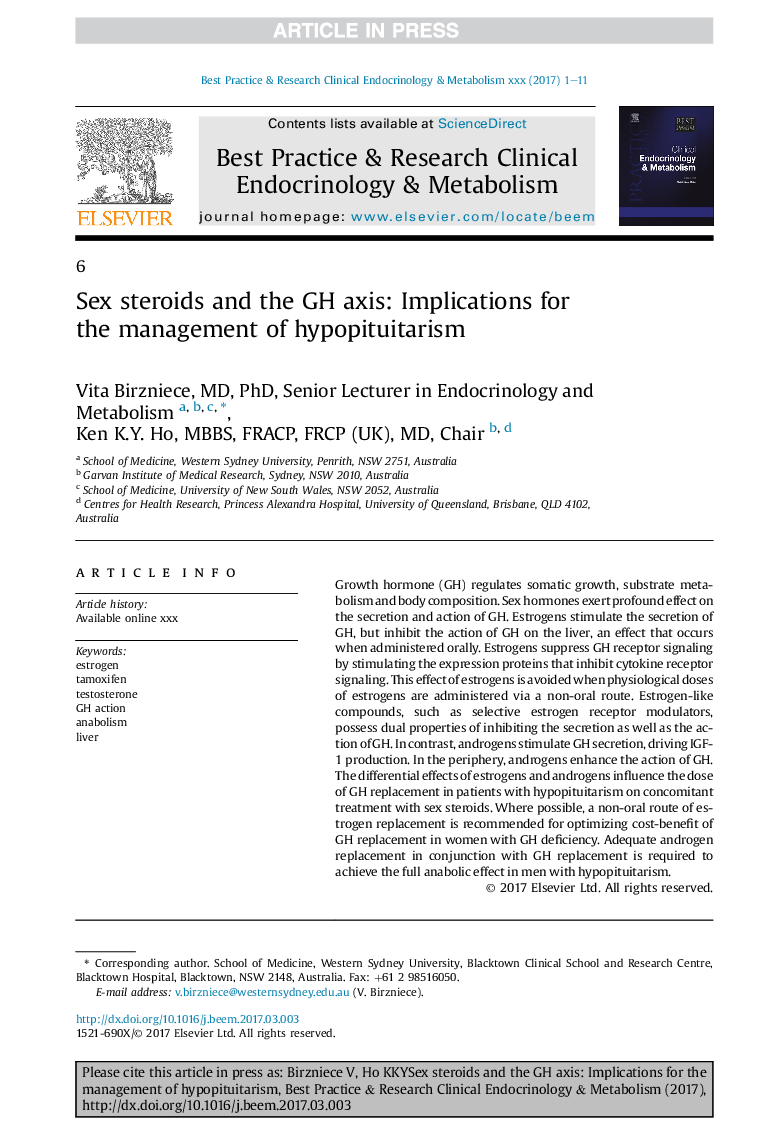| Article ID | Journal | Published Year | Pages | File Type |
|---|---|---|---|---|
| 5586655 | Best Practice & Research Clinical Endocrinology & Metabolism | 2017 | 11 Pages |
Abstract
Growth hormone (GH) regulates somatic growth, substrate metabolism and body composition. Sex hormones exert profound effect on the secretion and action of GH. Estrogens stimulate the secretion of GH, but inhibit the action of GH on the liver, an effect that occurs when administered orally. Estrogens suppress GH receptor signaling by stimulating the expression proteins that inhibit cytokine receptor signaling. This effect of estrogens is avoided when physiological doses of estrogens are administered via a non-oral route. Estrogen-like compounds, such as selective estrogen receptor modulators, possess dual properties of inhibiting the secretion as well as the action of GH. In contrast, androgens stimulate GH secretion, driving IGF-1 production. In the periphery, androgens enhance the action of GH. The differential effects of estrogens and androgens influence the dose of GH replacement in patients with hypopituitarism on concomitant treatment with sex steroids. Where possible, a non-oral route of estrogen replacement is recommended for optimizing cost-benefit of GH replacement in women with GH deficiency. Adequate androgen replacement in conjunction with GH replacement is required to achieve the full anabolic effect in men with hypopituitarism.
Related Topics
Life Sciences
Biochemistry, Genetics and Molecular Biology
Endocrinology
Authors
Vita (Senior Lecturer in Endocrinology and Metabolism), Ken K.Y. (Chair),
